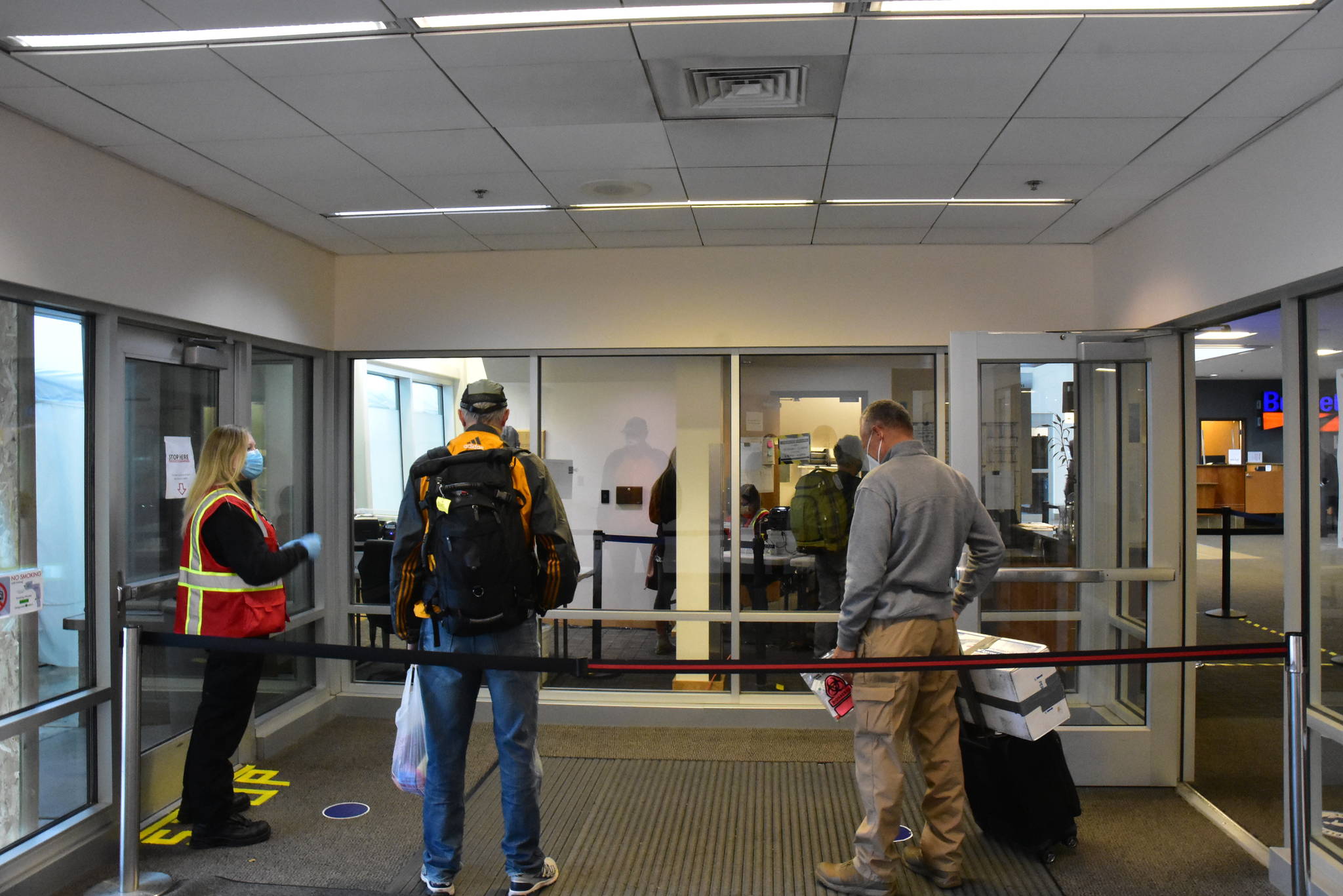Active coronavirus cases in Juneau are trending down and vaccines are being distributed, but city officials still can’t say when pandemic facilities will be stood down.
The City and Borough of Juneau plans to hold its first major COVID-19 vaccine clinic at Centennial Hall this weekend, and while there have been some technical troubles with the rollout, health officials are confident of their ability to deliver the vaccines. However, without knowing how many vaccines the city is going to receive and when, it’s hard to say when things might return to normal, according to Robert Barr, planning section chief for the city’s Emergency Operations Center.
Speaking to the Juneau Chamber of Commerce on Thursday, Barr said that by the end of the weekend roughly 10% of Juneau’s population age 15 and older will be vaccinated. Because of Juneau’s and Alaska’s already robust health care network, much of the capacity to distribute the vaccine was already present.
“Our bottleneck is the vaccine, not our ability to deploy it,” Barr said.
The city has experienced an overwhelming display of support from local health care workers, Barr said. Volunteers with medical training, including retired medical professionals and private sector workers, have applied in large numbers to assist with distribution. The city is able to get the vaccine to the people who need it, Barr said, but currently there are more patients than injections.
When the city opened vaccine applications on Monday, the 1,100 available spots were filled within 25 minutes. The city is expecting more doses, Barr said, but is waiting on federal guidance on distribution to the wider public.
Speaking to the Empire by phone Thursday, Barr said health officials felt the virus was being largely contained locally. With the start of Alaska’s Legislature next Tuesday, lawmakers, their staff and others will be arriving in the capital at the same time Juneau has lowered some health restrictions.
[Low positivity rate ‘incredible’; next challenge is vaccines]
City health officials have reviewed the Legislature’s mitigation plans, Barr said, and are confident the appropriate steps are being taken by the state. The state has limited access to the Capitol building and hired a private company to screen everyone entering. Many legislators would be eligible for the vaccine, he said, and the city is continuing asymptomatic testing to monitor COVID-19 in the community.
But even as vaccines are being given and numbers are heading down, the city isn’t quite ready to start standing down its coronavirus-related facilities. Several CBJ-owned properties, including Centennial Hall, have been converted to deal with the pandemic; Barr himself was the city’s library director before being tapped for the EOC.
“Those conversations are coming,” Barr said. “I think after we have a good understanding of where vaccinations are headed and what our needs are going to look like in the summer months, we’ll have a better idea.”
The testing at Juneau International Airport has been taken over by a private company, Capstone, which took some of the pressure off the city, he said. Previously, the city contracted with the state to administer the testing site at the airport.
All of the programs set up by the city were initially covered by money from the federal CARES Act, CBJ Finance Director Jeff Rogers said in a phone interview, but the city has spent most of that money. The Assembly voted in September not to hold CARES Act money, wary of waiting on Congress to act before the original deadline. Congress did eventually pass an extension, but not until Dec. 22, just days before the deadline.
The Assembly also voted to use $3 million from the city’s general fund to continue COVID-19 operations, Rogers said, but the city is billing the Federal Emergency Management Agency for those costs. Additionally, Rogers said, the city is hopeful Congress will pass another stimulus bill that will cover pandemic-related costs.
President-elect Joe Biden has proposed a stimulus plan worth $1.9 trillion, with $50 billion for expanded testing, according to NPR.
In a weekly meeting with the press, state Chief Medical Officer Dr. Anne Zink made statements similar to Barr’s about receiving an overwhelming show of support from volunteers with medical training. Like Barr, Zink said one of the largest barriers to distributing the vaccine is getting enough doses rather than the capacity to deliver it. But the state is also trying to be equitable in distribution, with rural areas and vulnerable populations being prioritized, she said, which is more difficult than in urban areas.
More doses are expected soon, as are federal guidelines from the Centers for Disease Control and Prevention for the next phases of vaccine distribution, Barr said.
“We’re still in this, wait, wait, wait … sprint phase,” he said. “Where we have to wait until we learn something new again.”
• Contact reporter Peter Segall at psegall@juneauempire.com. Follow him on Twitter at @SegallJnuEmpire.

